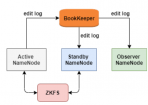本周五,特朗普政府提出预算议案,大幅增加对人工智能和量子信息科学的资助。2021财年,针对这两项新兴技术的开支将达到22亿美元。国会原本建议开支为17亿美元,然而,可能是受到来自中国高速发展的量子等技术带来的压力,特朗普大笔一挥,将其提高了约30%。美国联邦政府首席技术官Michael Kratsios表示,人工智能和量子信息科学对经济增长和国家安全至关重要,“我们要确保在当前的技术上我们是赢家和领跑者……也要确保在决定未来的技术上同样如此。”
译自Sara Castellanos发表于《华尔街日报》的文章
译者 | 王佳
该预算议案的提出是因为来自中国的压力,中国正在大力投资这些新兴技术。
特朗普政府已经提议,在2021年将人工智能和量子信息科学的非国防预算增加约30%。
The Trump administration has proposed a spending increase of about 30% in the 2021 nondefense budget for artificial intelligence and quantum information science.
该议案于周五公布,正值中国以及其他投资这些新兴技术的国家不断施加竞争压力之际。
The proposal, released Friday, coincides with competitive pressure from China and other countries that are investing in these emerging technologies.
政府表示,这一议案包括向国家科学基金会、农业部和其他机构提供资金,用以发展人工智能研究机构。它还包括为能源部提供2500万美元资金,用于建立早期阶段的量子互联网——量子互联网使用量子力学原理来实现更安全的数据传输。
The proposal includes funding to develop AI research institutes, formed by the National Science Foundation, the Department of Agriculture and other agencies, the administration said. It also includes $25 million in funding for the Energy Department to build an early-stage quantum internet, which uses the principles of quantum mechanics to more securely transmit data.
美国联邦政府首席技术官Michael Kratsios表示,人工智能和量子信息科学(包括基于量子的密码学、通信和量子计算)对经济增长和国家安全至关重要。
AI and quantum information science, an area of study that includes quantum-based cryptography, communication and quantum computing, are critical for economic growth and national security, said Michael Kratsios, U.S. chief technology officer.
“我们要确保在当前的技术上我们是赢家和领跑者……也要确保在决定未来的技术上同样如此。”Kratsios这样说。
“We need to make sure we’re winning and leading in the technologies of today…and also in technology that will define our future,” Mr. Kratsios said.
白宫的2021财年预算议案包括:15亿美元用于人工智能,高于2020年的11.2亿美元;6.99亿美元用于量子信息科学,高于2020年的5.79亿美元。这项总共22亿美元的2021资助议案比国会建议拨给这两项技术的17亿美元增加了约30%。
The White House’s fiscal year 2021 budget proposal includes $1.5 billion for AI, up from about $1.12 billion in 2020, and $699 million for quantum information science, up from about $579 million in 2020. The $2.2 billion total funding proposal for 2021 represents about a 30% increase over the $1.7 billion in spending across the two technologies that was appropriated by Congress this year.
国会必须批准这项预算议案。
Congress must approve the budget proposal.
数据创新中心(Center for Data Innovation,一家无党派研究机构) 2019年发布的一份报告显示,中国正在以比美国和欧盟更快的速度采用人工智能,这可能是因为中国企业和公民了解人工智能的价值。一些商业领袖表示,美国需要投入更多资金,以保持在人工智能领域的竞争优势。
China is adopting AI at a faster rate than the U.S. and the European Union, possibly because Chinese companies and citizens understand the value of AI, according to a 2019 report released by the Center for Data Innovation, a nonpartisan research institute. Some business leaders have said the U.S. needs to spend more money to maintain a competitive edge in AI.
今年2月,白宫概述了一项计划,2020至2022年期间,每年用于人工智能的资金将增加至20亿美元以上,而在此期间,用于量子信息科学的资金将增加到8.6亿美元。
In February, the White House outlined a plan for annual spending on AI to rise to more than $2 billion between 2020 and 2022, and funding for quantum information science to increase to $860 million between that time frame.
这项2021年资助议案在周五公布,作为白宫科学和技术政策办公室的人工智能和量子技术研究与发展报告的一部分。
The 2021 funding proposal for the technologies was released Friday as part of an AI and quantum technology research and development report from the White House Office of Science and Technology Policy.
这份研究与发展报告显示,特朗普政府有望实现其承诺,即在2020至2022年期间,将人工智能和量子信息科学的非国防研发开支大致增加一倍。
The research and development report shows that the Trump administration is on track to meet its commitment of roughly doubling nondefense research and development spending on artificial intelligence and quantum information sciences between 2020 and 2022.
排版|猫撸火锅
由于微信公众号试行乱序推送,您可能不再能准时收到墨子沙龙的推送。为了不与小墨失散, 请将“墨子沙龙”设为星标账号,以及常点文末右下角的“在看”。
墨子沙龙是以中国先贤“墨子”命名的大型公益性科普论坛,由中国科学技术大学上海研究院主办,中国科大新创校友基金会、中国科学技术大学教育基金会、浦东新区科学技术协会、中国科学技术协会及浦东新区科技和经济委员会等协办。
墨子是我国古代著名的思想家、科学家,其思想和成就是我国早期科学萌芽的体现,“墨子沙龙”的建立,旨在传承、发扬科学传统,建设崇尚科学的社会氛围,提升公民科学素养,倡导、弘扬科学精神。科普对象为热爱科学、有探索精神和好奇心的普通公众,我们希望能让具有中学及以上学力的公众了解、欣赏到当下全球最尖端的科学进展、科学思想。
关于“墨子沙龙”














